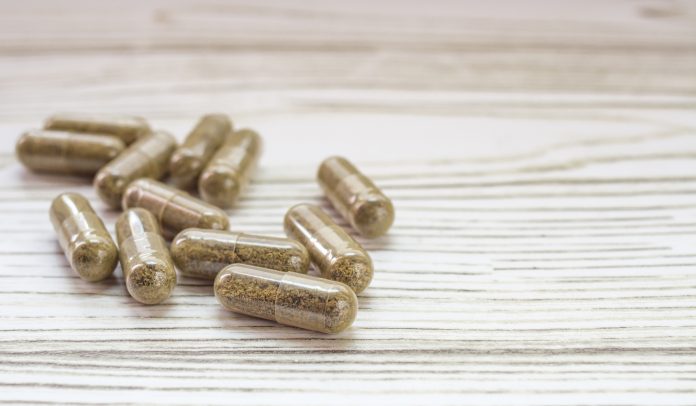CBD has been gaining popularity over recent years, with a wide range of CBD infused products available to buy on the high street, but what is it, and can it really help aid mental health issues?
Is CBD legal?
CBD isn’t a controlled substance, and is perfectly legal in the UK as long as it contains less than 0.2% THC. To ensure this, most CBD products are made from hemp – a plant that still belongs to the cannabis family but contains far less THC than marijuana.
CBD won’t cause any intoxicating effects as it only contains a trace of THC at the most, which isn’t enough to make you feel high. Because of this, and the potential benefits that CBD may bring, it’s completely legal as long as it complies with guidelines set out by the government.
What is CBD?
CBD is an acronym for cannabidiol, and it’s just one of the many cannabinoids that can be found in cannabis plants. Unlike the more famous THC (tetrahydrocannabinol), CBD has very little to no intoxicating effects, hence why it’s a legal substance and can be bought freely from high street shops in various forms.
Many people think that CBD is an herbal medicine, but in actual fact, it has no indications at all, and is classed as something called a “novel food”. This means that CBD can’t be sold to treat or help with any conditions as it isn’t licenced for it. CBD shouldn’t be confused with medical cannabis, which can only be prescribed by a specialist. Despite the fact that medical cannabis has been legal in the UK since 2018, only a handful of people have access to it, and it tends to be reserved for those with severe and treatment resistant epilepsy or MS. Because of the restrictions that have been placed on prescribing medical cannabis, many people have turned to self-treating with CBD that’s widely available in health shops to see if it will help with their anxiety.
However, just because the CBD that you can buy on the high street isn’t a medicine, it doesn’t mean that it doesn’t have any benefits or healing properties. Anecdotal evidence can be found within social media groups and online forums about how CBD has helped people with various conditions from pain relief to mental health, and in some cases, people have claimed that the cannabinoid has helped them to withdraw from Xanax (a benzodiazepine medicine used to treat anxiety in the USA). But how does it work?
The endocannabinoid system
In our bodies, we have an endocannabinoid system (ECS) which is part of the nervous system. It interacts with cannabinoids from the cannabis plants in order for the body to respond to them. Where THC is concerned, it binds to receptors in the endocannabinoid system in the brain, causing psychoactive and intoxicating effects, but CBD works differently within the ECS to provoke a different response.
Whilst CBD can still bind to the receptors in the brain, it doesn’t have the same effect on the body that THC does, and instead is thought to produce therapeutic effects such as reducing inflammation. However, it’s also believed that CBD can have an effect on the neurotransmitters that are involved with serotonin – a chemical that’s involved with the regulation of mood. Low serotonin levels have been linked to mental health issues such as depression and anxiety, with first-line treatments for these conditions consisting of medicines that raise the amount of serotonin in the brain.
Unfortunately, research into how CBD can help with mental health issues is limited, but if CBD does alter serotonin receptors like current theories claim, it’s entirely possible that it could aid with depression and anxiety, supporting anecdotal evidence on social media sites and forums.
As it isn’t yet fully understood as to how CBD may help with mental health disorders, it’s unlikely that GPs would recommend it as a treatment for anxiety or depression, but there are currently no official guidelines that say it shouldn’t be taken with certain medications.
How do you take CBD?
There are many different forms of CBD, and not all of them are taken in the same way. One of the most common forms is CBD oil, which can either come with a dropper or as an oral spray. These types of CBD should be absorbed sublingually (under the tongue), and allow you to control the dosage yourself. Because it isn’t a medicine, there isn’t a patient information leaflet to tell you how much to take, so it’s always a good idea to start off with small doses and gradually build up to find your tolerance level.
Another common method of taking CBD is to buy it in e-liquid form, though it’s important to note that the safety of e-cigarettes or vaping haven’t yet been fully explored, so if you don’t already vape regularly, it may be a good idea to try CBD in oil form first.
Will CBD help me with my mental health issues?
Unfortunately, it’s impossible to say either way whether CBD will help you, but that’s the same for many other novel foods and substances, as well as even some licenced medicines.
If you think that using CBD might help you with mental health issues such as anxiety or depression, it can be found in varying strengths in health shops and online. You should gradually increase your dose if you don’t feel any benefits by taking a low-strength version, but make sure that you stay aware of how you’re feeling, and don’t stop taking any prescribed medicines without speaking to your doctor first.
Doctor4U











